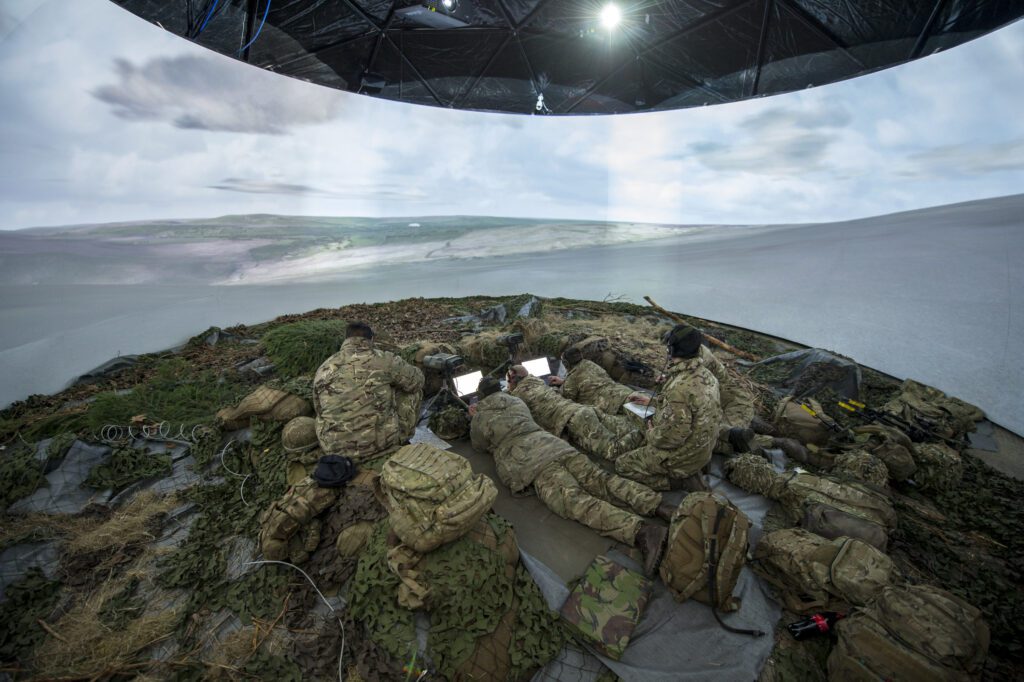War games have been a crucial tool in military training for centuries, evolving from ancient games like hoplite warfare to modern simulations using advanced technologies such as virtual reality and computer simulations. These games provide soldiers with realistic combat scenarios, improving their teamwork, communication, strategic thinking, and decision-making skills. Additionally, war games offer a risk-free environment for soldiers to practice and learn from their mistakes. As technology continues to advance, the future of war games looks promising, with virtual reality and augmented reality providing even more realistic and immersive training experiences. Overall, war games play a critical role in preparing soldiers for the challenges of modern warfare.
War games have long been a critical tool in military training, helping soldiers to prepare for combat by simulating realistic war scenarios. Over the years, war games have evolved significantly, incorporating advanced technologies and strategic thinking to better train troops for modern warfare. This article explores the evolution and impact of military simulation in modern warfare, highlighting the key advancements and benefits of war games in preparing soldiers for the battlefield.
## The Origins of War Games
War games have been used for centuries as a way to simulate military conflicts and test strategic and tactical skills. The earliest recorded war games date back to ancient times, with the ancient Greeks using games like hoplite warfare to train their soldiers. In the 19th and 20th centuries, war games became more formalized, with the Prussian military developing the Kriegsspiel, a game that simulated military maneuvers and battles.
## The Evolution of War Games
In the 20th century, war games began to incorporate more advanced technologies, such as computers and simulations, to create more realistic and immersive training scenarios. The advent of computerized simulations allowed for greater complexity and realism in war games, enabling soldiers to train for a wider range of scenarios and environments.
Today, war games are conducted using a variety of technologies, including virtual reality, augmented reality, and advanced computer simulations. These technologies allow soldiers to train in realistic combat environments, practice teamwork and communication skills, and develop strategic thinking and decision-making abilities.
## The Benefits of War Games
War games offer a number of key benefits to military training, including:
1. **Realistic Training**: War games provide soldiers with the opportunity to train in realistic combat scenarios, allowing them to develop the skills and experience needed to succeed on the battlefield.
2. **Teamwork and Communication**: War games require soldiers to work together as a team, improving their ability to communicate and collaborate effectively in high-pressure situations.
3. **Strategic Thinking**: War games help soldiers develop strategic thinking and decision-making skills, allowing them to plan and execute complex missions with precision.
4. **Risk-Free Training**: War games allow soldiers to practice and make mistakes in a safe, controlled environment, reducing the risk of casualties and ensuring that troops are better prepared for actual combat.
## The Future of War Games
As technology continues to advance, the future of war games looks promising. Virtual reality and augmented reality technologies are becoming more sophisticated, offering even more realistic and immersive training experiences for soldiers. These technologies can help to simulate a wider range of combat scenarios and environments, providing troops with the skills and experience they need to succeed on the battlefield.
Overall, war games play a critical role in preparing soldiers for modern warfare, helping them to develop the skills and experience needed to succeed in combat. By incorporating advanced technologies and strategic thinking into military training, war games continue to evolve and improve, ensuring that soldiers are ready to face the challenges of modern warfare.
